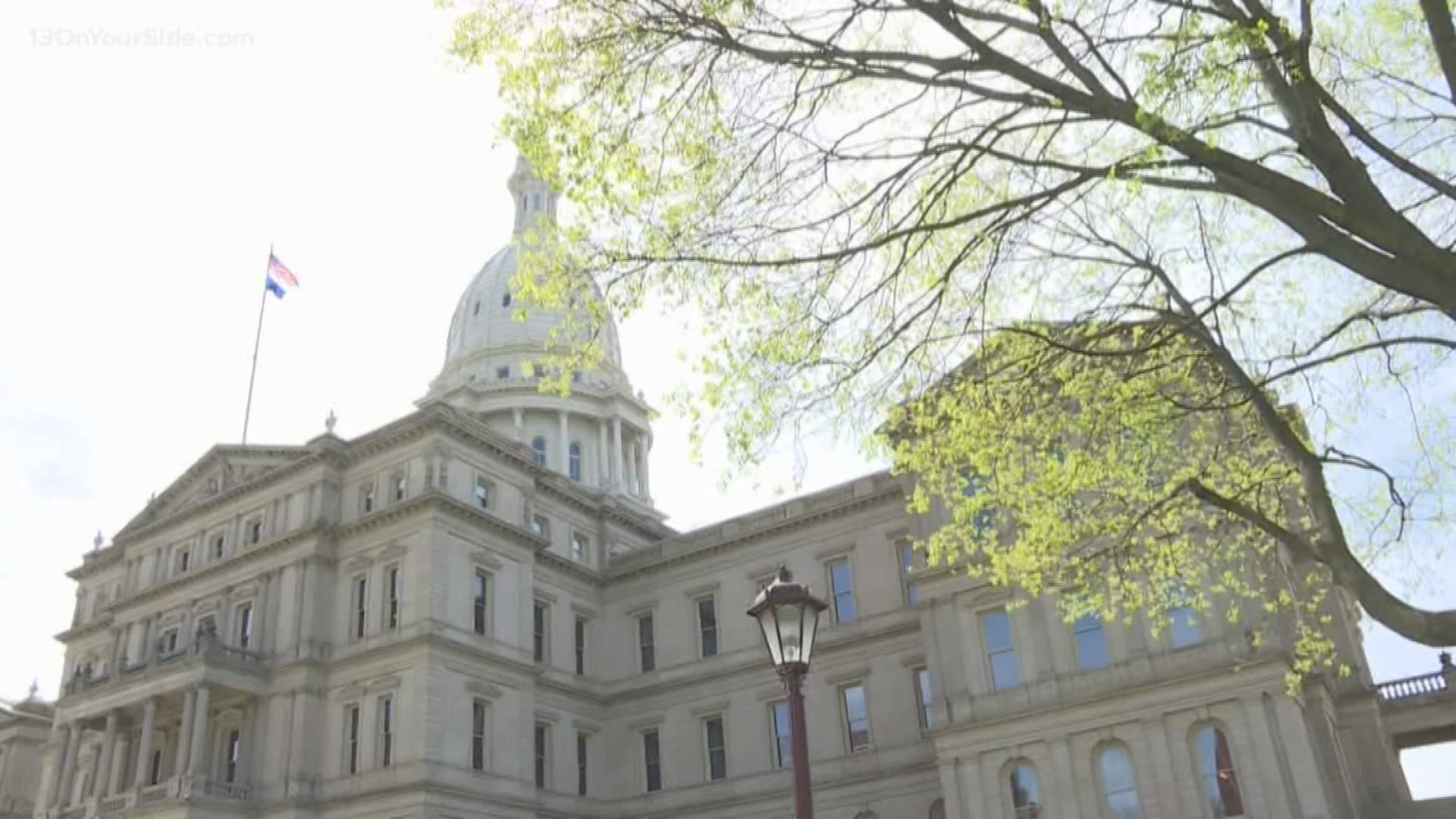LANSING, Mich. (AP) — Michigan superintendents sounded the alarm Tuesday over starting school without knowing how much state funding their districts will receive, saying it affects staffing and other decisions.
No state K-12 budget is in place because Democratic Gov. Gretchen Whitmer and the Republican-led Legislature remain at odds over her proposed 45-cents-a-gallon, $2.5 billion fuel tax hike to fix the roads and free up more money for education. This is the first time in a decade that school leaders have not known their state aid by July, the beginning of schools' fiscal year.
"We've been thrown into a state of uncertainty in trying to plan for the new year," said Dan Behm, superintendent of Forest Hills Public Schools in suburban Grand Rapids. "Where we have staffing issues, we're in a state of limbo."
Behm and other superintendents spoke a day after Whitmer wrote a letter to education leaders and union members saying they "deserve better" and again criticizing lawmakers for adjourning for much of the summer without a budget deal before the Oct. 1 deadline. The House returned to session Tuesday, while the Senate began meeting again last week.
Though most schools will reopen next week, many others began classes this week after receiving waivers from the post-Labor Day start law.
The superintendents said operating with what is effectively flat funding — for now — is harmful, especially if more students than expected show up on day one.
Ken Gutman, superintendent of Walled Lake Consolidated Schools in suburban Detroit, said he may delay hiring more teachers, social workers and school psychologists "not knowing if we're going to have money to keep them."
Whitmer's proposal would pump $526 million, or 3.5%, more into the K-12 budget, which would be the largest increase in classroom spending in 18 years when retirement costs are not counted. Funding would rise between $203 million and $395 million under House and Senate proposals, or 1.4% and 2.7%. The most recent annual U.S. inflation rate was 1.8%.
The legislative blueprints do not include her call to shift to a "weighted" formula to account for extra costs to educate certain students.
"The differences between the House budget and the governor's proposed budget are significant," said Randy Liepa, superintendent of the Wayne Regional Educational Service Agency.
A spokesman for House Speaker Lee Chatfield said school funding is a priority, noting that both the House and Senate passed K-12 plans with "record" levels of funding months ago.
"They wanted to help the governor work on her No. 1 priority and her No. 1 campaign promise, which was road funding," Gideon D'Assandro said. "It's a longer conversation, and they're still working with her to find common ground."
The superintendents echoed Whitmer's criticism of House Republicans' call to remove the sales tax from fuel, which mainly goes to schools and municipalities, to generate an additional $840 million for roads. They also were critical of potential moves such as extending the date to pay off unfunded liabilities in the Public School Employees' Retirement System.
"We've spent a long time paying down that system. To go in the other direction would be financially irresponsible," said Erik Edoff, superintendent of L'Anse Creuse Public Schools outside Detroit.
The state's K-12 budget has increased for seven straight years but has largely been driven by state payments toward school retiree costs and federal funding. Operational funding exceeded the previous peak — in 2006-07 — for the first time this fiscal year, according to the nonpartisan House Fiscal Agency.
RELATED VIDEO:
►Make it easy to keep up to date with more stories like this. Download the 13 ON YOUR SIDE app now.
Have a news tip? Email news@13onyourside.com, visit our Facebook page or Twitter.


